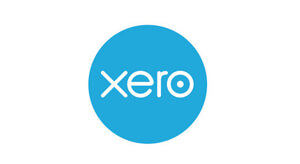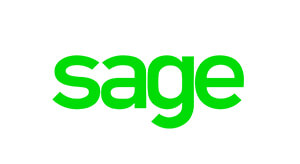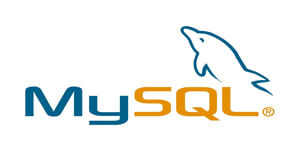A small business is full of possibilities, challenges, and endless decisions. Even with all of the excitement, one thing remains constant: the need to manage your money well. Though bookkeeping sounds mundane, it is the unsung hero behind the success of your business. It’s all about staying on top of every penny, making sure the business is financially healthy, and preparing it for whatever comes next. In this article, we’ll discuss what is bookkeeping for small businesses, why it matters, and how you can master it.
What is bookkeeping?
In essence, bookkeeping refers to recording every financial transaction your organization makes. You can think of it as a diary for your business’s financial life, where each entry tells you where your money comes from and where it goes. This is more than just numbers, it’s your business’ story.
Think of it this way: when you know where your money is, you are in control. Bookkeeping helps you stay on top of your income, expenses, and everything in between. Plus, did you know that 82% of businesses fail because of cash flow issues? That’s an astounding figure, and it highlights just how crucial it is to keep your finances in check.
Here’s what bookkeeping involves:
- Recording Transactions: Every sale, every expense, nothing gets missed.
- Organizing Financial Documents: Keeping receipts, invoices, and financial records neatly organized, so you’re never scrambling at tax time.
- Maintaining Ledgers: Tracking individual accounts like cash flow, inventory, or accounts payable, making sure everything is balanced and up to date.

What’s the difference between bookkeeping and accounting?
You’ve probably heard bookkeeping and accounting used interchangeably, but they’re not the same thing. Bookeeping is the daily grind, the process of recording all your financial transactions. It’s the foundation that keeps your business’s finances steady and reliable.
Accounting, on the other hand, takes that recorded data and turns it into insights. It’s about interpreting the numbers, analysing trends, and providing strategic advice based on the financial data that bookkeeping provides. So, while bookkeeping is the engine that keeps your business running, accounting is the GPS that helps you navigate where you’re going.
Why do small businesses need bookkeeping?
Let’s face it: running a small business is hard work, and keeping your books in order might not be at the top of your list. But here’s why bookkeeping is important for small businesses:
- Keeping Your Business Healthy: Bookkeeping gives you a clear picture of your financial health. Are you making money? Are your expenses under control? Regular bookkeeping answers these questions, so you can make informed decisions and avoid financial surprises.
- Staying on the Right Side of the Law: Nobody likes dealing with taxes, but bookkeeping makes it easier. Accurate records ensure that you’re compliant with tax laws and help you take advantage of deductions you might otherwise miss.
- Making Smart Decisions: Whether you’re thinking about expanding, investing, or simply adjusting your budget, having up-to-date financial records means you can make decisions based on facts, not guesswork.
- Attracting Investors and Loans: If you’re looking to grow your business with the help of loans or investors, well-maintained financial records are key. They show that you’re serious, organized, and on top of your game.
How to do bookkeeping for a small business?
Bookkeeping might seem intimidating at first, but it doesn’t have to be. With a little know-how and the right tools, you can handle it like a pro. Here’s how to get started:
Pick the Right Bookkeeping Method:
- Single-Entry Bookkeeping: This is the simplest method, where each transaction is recorded just once, either as income or expense. Ideal for sole traders or businesses with uncomplicated finances.
- Double-Entry Bookkeeping: For those with more complex finances, this method records each transaction in two accounts, debit and credit, providing a more accurate financial picture. Curious about how this works? Dive into this blog on what is double-entry bookkeeping? to learn more.
Set Up Your Chart of Accounts (CoA):
- Organize Your Financial Life: Create a CoA that categorizes your transactions into assets, liabilities, equity, revenue, and expenses. It’s like having a roadmap for your money.
- Assign Numbers: Give each account a unique number to keep everything easy to track and report.
Track and Categorize Every Penny:
- Stay Consistent: Regularly update your books so you’re always on top of your finances.
- Categorize Smartly: Make sure every expense is properly categorized, so you know exactly where your money is going.
Reconcile Like a Detective:
- Bank Reconciliation: Regularly compare your books with your bank statements to catch any discrepancies or errors early on.
- Keep Your Financial Statements in Check: Generate Reports: Create income statements, balance sheets, and cash flow statements to monitor your business’s financial health. These reports are your best friends when it comes to understanding where your business stands.
Know When to Call in the Pros:
- Hire a Bookkeeper or Accountant: If bookkeeping becomes too much, there’s no harm in bringing in a professional to ensure everything is accurate and compliant.

Easy Bookkeeping for Small Businesses: Keep It Simple
Bookkeeping doesn’t have to be a nightmare. By adopting some easy bookkeeping for small business practices, you can keep your finances in order without feeling overwhelmed. Here’s the secret: set aside a regular time each week to update your books, categorize your expenses, and reconcile your accounts. By staying consistent and using the right tools, you’ll find that bookkeeping becomes a natural part of your routine.
Pro Tips for Stress-Free Bookkeeping
Want to make your bookkeeping process smoother? Check out these bookkeeping tips for small businesses:
- Keep Business and Personal Finances Separate: Always maintain separate bank accounts for your personal and business transactions. It simplifies your bookeeping and makes tax time a whole lot easier.
- Update Your Records Regularly: Consistency is key. Make a habit of updating your books regularly to avoid errors and stay on top of your financial health.
- Automate Tasks Where You Can: Use bookkeeping software to automate repetitive tasks like invoicing and expense tracking. This not only saves time but also reduces the risk of mistakes.
For more expert advice, take a look at this blog on 10 bookkeeping tips for small businesses, packed with practical strategies to streamline your financial management.
Bookkeeping Tools and Software: Your Financial Sidekick
Gone are the days of tedious manual bookkeeping. Today, digital tools make it easier than ever to keep your finances in check. Here are a few of the best options for small businesses:
- QuickBooks: If you’re looking for a comprehensive solution, QuickBooks has it all, from invoicing to payroll to expense tracking. It’s perfect for small to medium-sized businesses.
- Xero: This cloud-based platform is great for businesses that want a simple, straightforward solution. Xero’s user-friendly interface makes it easy to manage your finances without needing to be a bookkeeping expert.
- Wave: A fantastic free option, Wave offers essential accounting features that are ideal for freelancers and very small businesses.
- FreshBooks: Tailored for service-based businesses, FreshBooks offers time-tracking, invoicing, and project management features to help you stay organized and efficient.
If you want to get more comfortable with these tools, consider enrolling in a basic bookkeeping for a small business course. It’s a great way to build your skills and gain confidence in managing your finances.
Tailoring Bookkeeping to Your Unique Business
Every small business is different, and so are its bookkeeping needs. Here’s a look at how bookkeeping varies across different industries:
- Retail: Retail businesses juggle inventory, sales tax, and daily transactions. Accurate bookkeeping helps you manage these elements efficiently, ensuring profitability and smooth cash flow.
- Service Providers: For businesses that offer services, tracking billable hours and invoicing correctly is key. Whether you’re a freelancer, consultant, or contractor, bookkeeping ensures you’re getting paid for all your hard work.
- Construction: Construction companies often deal with long-term contracts, making it essential to manage accounts payable, accounts receivable, and job costing accurately.
- Security and Fire Safety: If you’re in this line of work, like those offering commercial fire alarm systems in Glasgow, tracking costs related to equipment, installation, and maintenance is crucial. Proper bookkeeping ensures that contracts and service agreements are profitable and managed efficiently.

Wrapping Up…
Bookkeeping might not be the most glamorous part of running a small business, but it’s undeniably one of the most important. It’s about more than just numbers, it’s about understanding your business’s financial health, staying compliant, and making informed decisions that help you grow. With the right approach, tools, and maybe a bit of professional help, you can master bookkeeping and focus on what you do best: running your business.
Looking for expert bookkeeping support for your small business? Our team provides tailored solutions to help you manage finances, track cash flow, and ensure compliance. Contact us today to discover how we can help you build momentum and achieve your business goals!

Momentum Bookkeeping Ltd
Mentieth House, 29 Park Circus, Glasgow, G3 6AP
Call. 0141 375 1240
Email. info@mvbooks.co.uk





